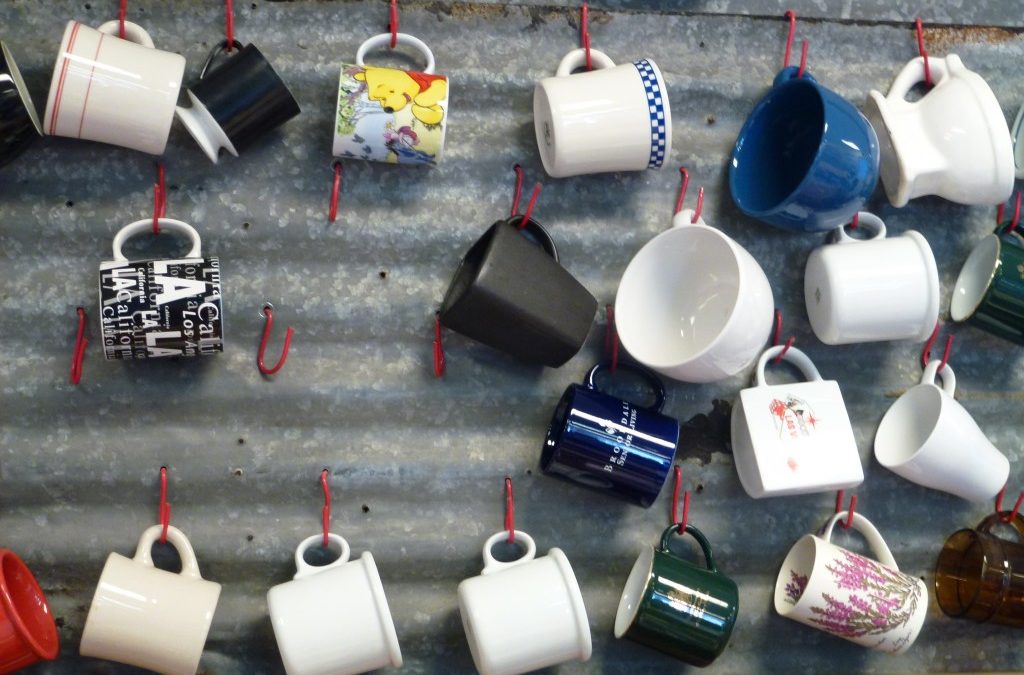
by Food+City | Feb 15, 2012 | Food Tracks Blog, Stories
Oliver Strand wrote in a recent New York Times article that coffee can be either something you make or something you drink. One coffee roaster in Austin, Texas believes coffee can be both. Roster Joe Lozano and Manager Clay Roper combine the nuances and artistry of making coffee with the palate and gustatory delight of drinking coffee. Telling the story of how they accomplish this is one of their favorite pastimes.
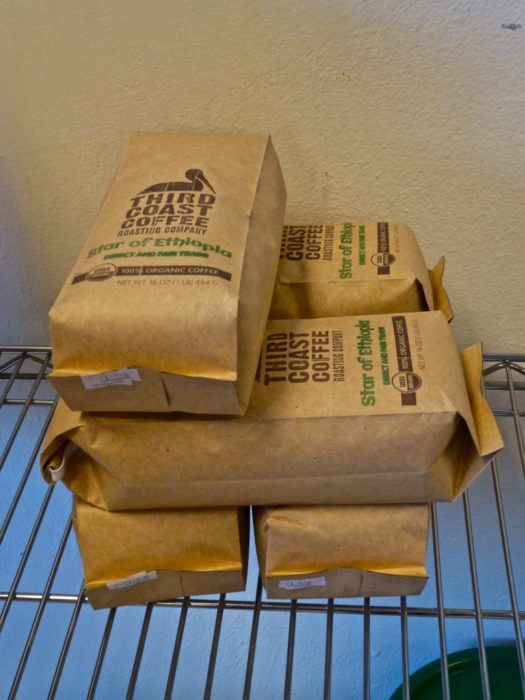
Third Coast Coffee Roasting Company occupies an unpretentious space in a small office complex outside of the bustle of downtown Austin. Although the company has a small coffee bar and a wall of coffee mugs to entice coffee drinkers, the place appears to be all about the making of coffee. Pallets of green coffee beans arrive from Cooperative Coffees, a collective of 24 roasters who purchase coffee according to Fair Trade relationships with their farming communities. Stacks of jute bags display the Cooperative Coffees logo and a description of the beans inside each bag. The five employees of the company take care to select, taste, re-taste, and taste again samples of beans that come from their growers. This process of tasting is called cupping by those in the trade and transforms Third Coast Roasting Company into a producer of something you drink rather than make. Clearly, Mr. Strand failed to imagine that some roasters could be occupied with both the making and drinking of coffee.
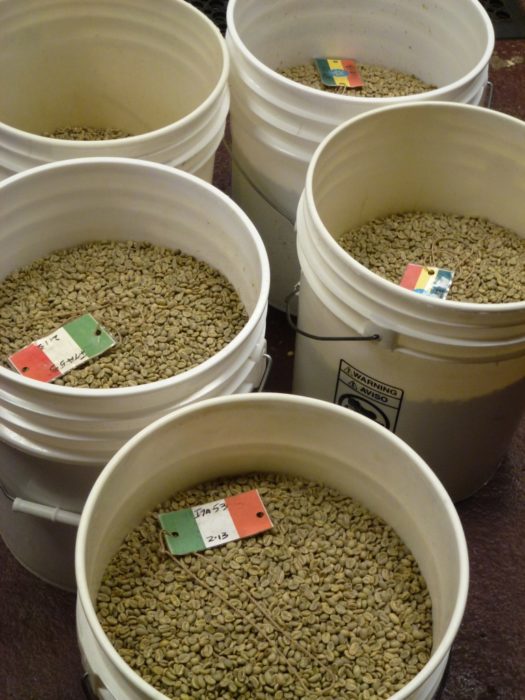
Once beyond the small coffee counter, a large floor-to-ceiling world map belies their main passion, the connection between the drinking and the producing of their coffee. Bright red pushpins mark each grower, most huddled in Central America, then down to South America, and a few sprinkled in Africa and Indonesia. And as if a colossal map weren’t enough to make their point, the roasters link their website to each of their growers through the use of Google Earth. Know Your Grower (You’ll need Google Earth to view this.) For these roasters, the urge to connect people to their coffee is irresistible and everywhere you turn you’ll find traces that lead from cup to country … and a little red pushpin.

Linking drinking to making coffee, the roasters work several roasting machines in the back of their space. Plastic buckets of green beans marked with flags of their country of origin line up aside each roaster, waiting the approval of Joe, the master roaster, as he fiddles with his roasting “recipes” on his laptop computer perched aside the active roasting oven. Joe’s background in the food business shaped his approach to roasting. He thinks of beans as food, assessing his roasts according to a bean’s texture, greenness, and a multitude of other characteristics that coffee aficionados boast about during their cupping sessions. Self-taught and intensely engaged with his custom roasts, he says he appreciates the knowledge a roaster builds up and would like someday to spend more time with the growers, enabling more collaboration and education within the coffee bean community.
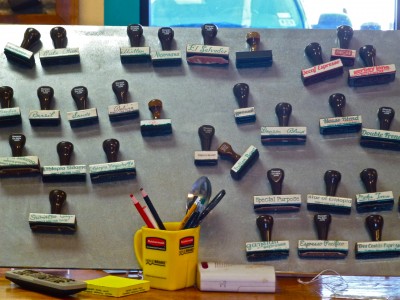
Admiring his completed lists of roasts on the day of my visit, Joe swung open the overhead door next to his ovens and stook in the sunshine that poured into his shop after three days of rain. His looked up, took in the fresh air, and returned to bagging the just-roasted beans for wholesale customers, restaurants and farmers markets. The combination of making and drinking coffee seems easy for these roasters.
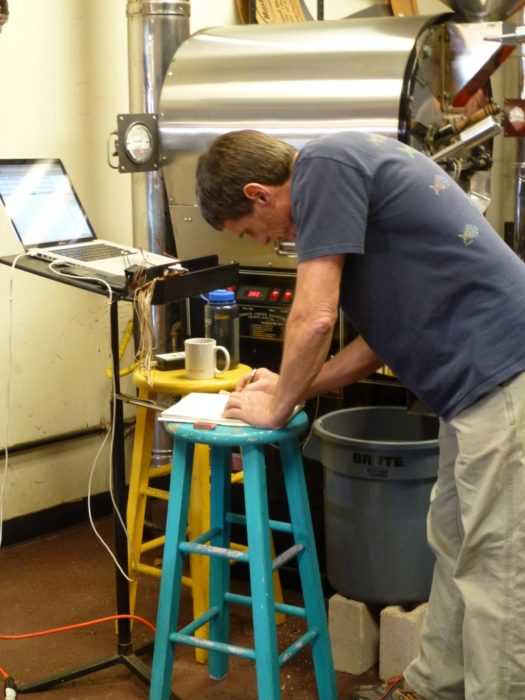
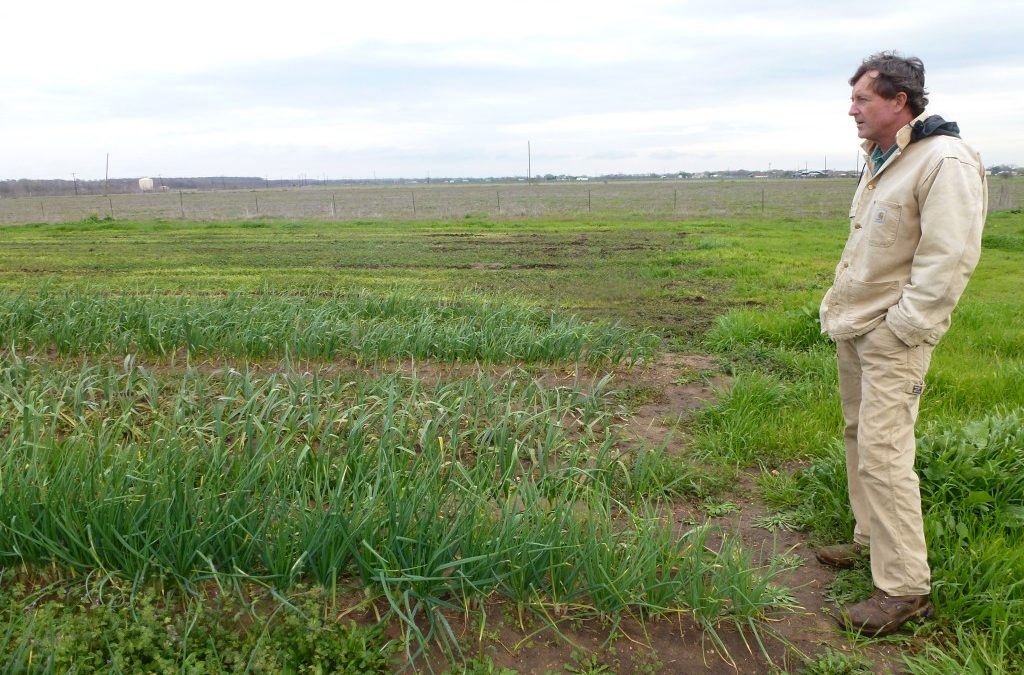
by Food+City | Feb 11, 2012 | Food Tracks Blog, Stories
If you want to find a happy man, look no further than David Pitre. His smile tells it all, the love and appreciation that he has for his work, the land, and even, yes, escarole. David and his wife Katie own Tecolote Farm, an organic farm located just outside Austin, Texas. Blue eyes sparkling as he describes their enterprise, David loves seeds, especially heirloom varieties that yield lettuce leaves brushed with burnt-umber that arrive on his farms with names like Marvel of Four Seasons. Lettuce and other vegetables grow at Tecolote Farm (named after the owls that live near their farm), the first farm to have offered a CSA in the Austin area in 1994.
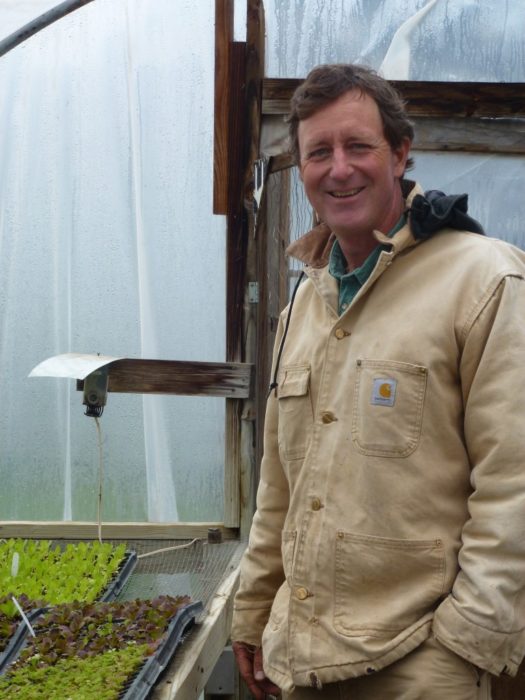
Why are David and Katie so happy? It couldn’t be the Texas drought, the fickle behavior of his favorite seed companies, or the economic downturn that shortened their list of CSA customers. But it might be their view that they make their own decisions about what to grow, their customers, and how they want to live. Working farmer’s hours, adapting to the challenges of weather and persnickety seeds, David and Katie exert their freedom to select and perfect the vegetable varieties for the Texas landscape while experimenting with seeds with odd names and unusual pedigrees. Over 150 vegetable varieties overcome the Texas drought to appear in Austin’s restaurants and on the tables of food lovers in Central Texas.
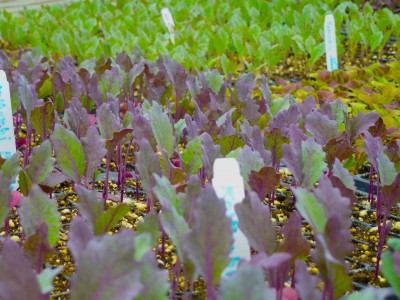
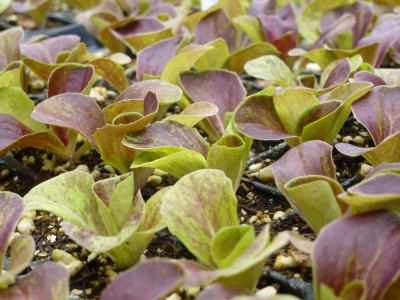
One area outside of this world of free choice is their chicken yard, Katie’s space where her own preferences are sure to prevail. Tecolote raises a flock of chickens that include Barred Rocks and a rotating list of chickens that suits Katie’s own tastes. David uses his background as an agronomy student during the 1980s to good use, growing oft-ignored crops like escarole, radicchio, chicory, and sorrel. Their CSA customers receive these and other more common vegetables in woven baskets every week, sometimes with recipes that use their Belgian endive or elephant garlic. You get the idea that Tecolote’s customers are more than just the paying kind; they are part of the farm’s urge to explore new ways of eating off the land in Texas.
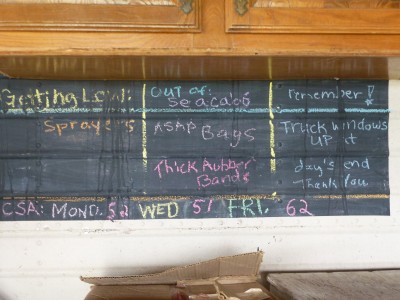
David grew up in Mexico City with a father who was an artist; Katie comes from Orange County, California, and the two of them raise their three teenage children on the farm along with three canine members of their family. In between growing seasons, they raise cover crops to prepare their soil for the next crops. Using turkey litter and rice hulls, they keep their soil ready to receive the next round of seedlings that emerge from Tecolote’s greenhouse, small, displaying purples, greens, and surprising hues of blue and red. On the day that I visited Tecolote, we walked through the rain-soaked muddy road to a pasture that was filled with garlic and shallots.
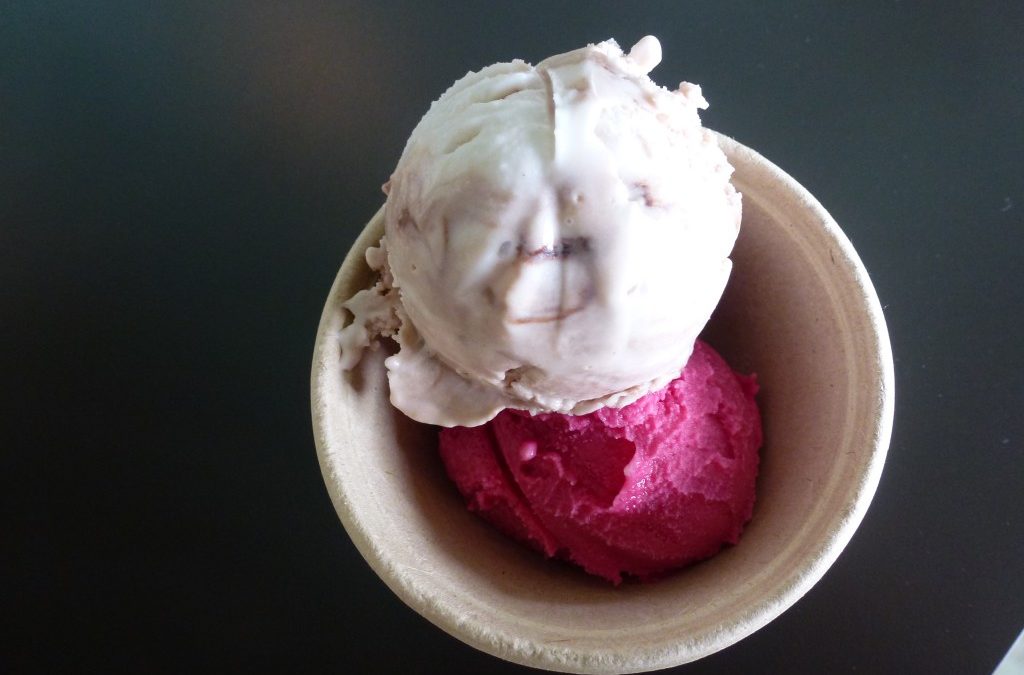
by Food+City | Feb 9, 2012 | Food Tracks Blog, Stories
If you think that bacon belongs with breakfast then you’d find Austin’s new source for ice cream a nightmare. Anthony Sobotik and his partner Chad Palmatier, owners of LICK, scoop Breakfast Bacon, any time of day, especially not at breakfast. An artisan of the artistic kind, Anthony dreams of new flavors, creating not only bacon flavored ice cream, but other equally inspired combinations, such as Thyme and Honey, Cilantro and Lime, and Caramelized Carrots and Tarragon. Flavors like these are made from the dreams of Anthony who has spent nights and days experimenting with his unusual combination of flavors, milk and cream.
From a family that include parents and grandparents making sausage, raising bees for honey, baking bread, Anthony was surrounded by food and cooking from an early age. By the time he was eight years old, he was in the family kitchen frying up a batch of pancakes and baking biscuits. The first book he ever purchased was a cookbook at an estate sale.
Picky about ingredients, he uses milk produced by small, Texan dairies, the kind that are rapidly disappearing. Anthony and Chad use milk from the few remaining small dairy farms in Texas, drawing upon fresh raw milk, locally pasteurized and regularly delivered to Lick for the next batch of ice cream. The Jersey cows at Texas Daily Harvest produce milk that Anthony combines with ingredients used to infuse his latest recipe with a balance of cream and milk. Chad, trained as an interior designer, and Anthony, a long-time baker, draw on their skills in a rare combination of artistry and taste. The flavors are not Austin-weird, but subtle, surprising, creating a flavor resonance between ingredients such as chocolate, cayenne, and chipotle.
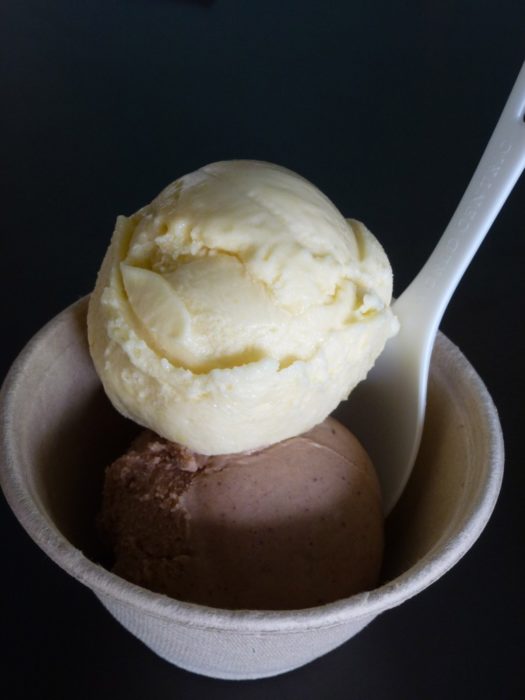
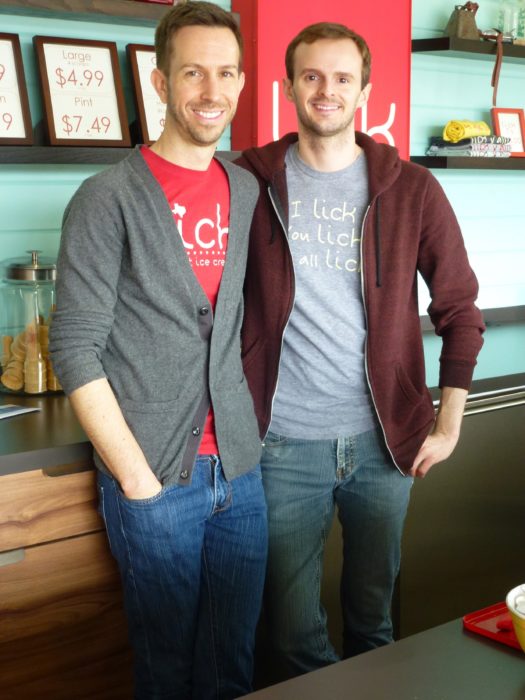
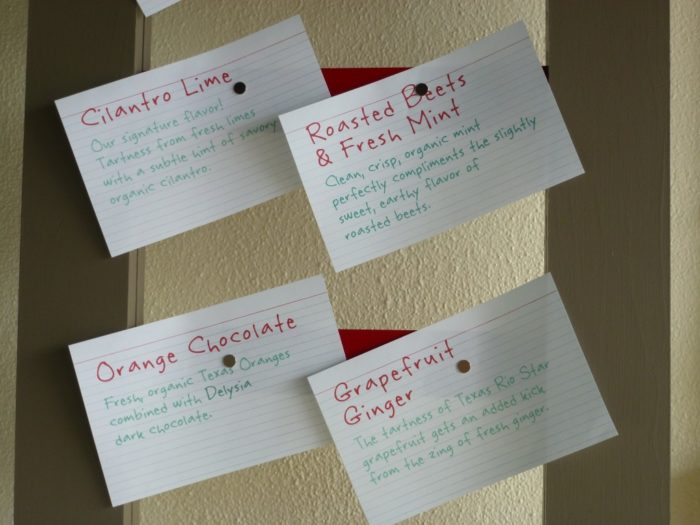
But the pure pleasure of producing these rare, provocative flavors is not in itself enough for these two. The enjoyment of sharing their ice cream with families, the odd skeptic, and other visitors to their shop is part of their business. Using ice cream cones that they make in their shop, they scoop out their ice cream to their fans who are finding them through Facebook and word of mouth. Soon they will deliver their novel scoops to Austin’s farmers markets and a few local grocery stores. For now, they have their hands full of 16 flavors developed from seasonal fruits, vegetables, and other locally produced ingredients. Even the marshmallows used in their Ranch Road flavor are made in Austin.
Meanwhile, Anthony is experimenting with a dark chocolate, olive oil, sea salt flavor, which is refusing to yield just the right taste and texture. Back in his kitchen behind the ice cream counter, he is infusing, stirring, cooling, and applying his artistry, which will some day produce the new chocolate concoction. What will he dream up next?
Robyn Metcalfe, Winter 2012 Austin Food Warrior
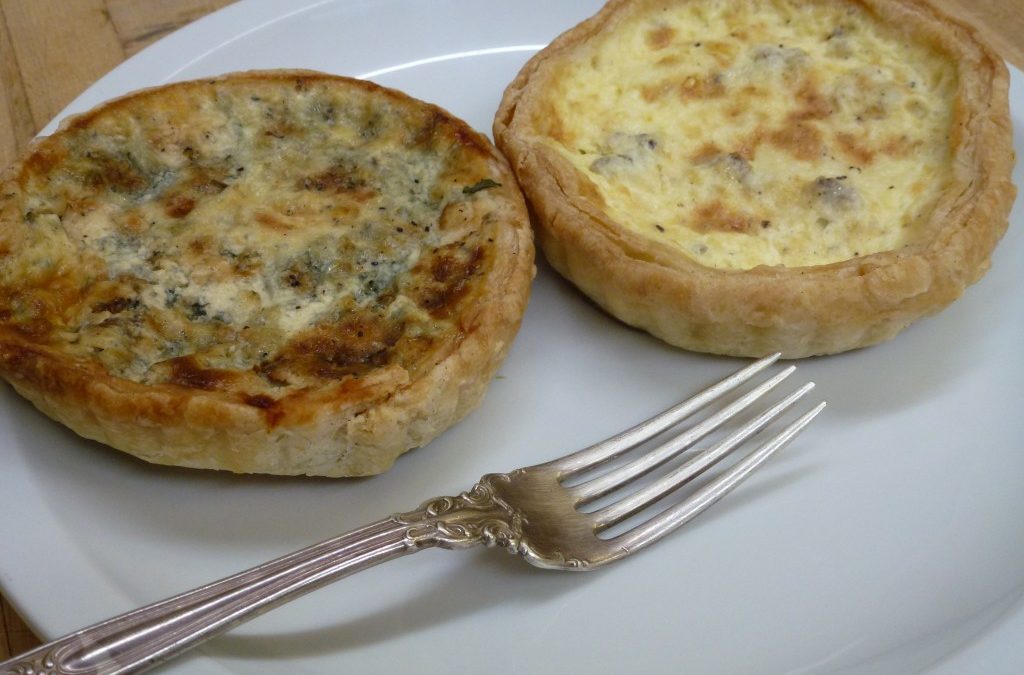
by Food+City | Feb 9, 2012 | Food Tracks Blog, Stories
Melissa Brinckmann runs her small pastry business, Cake and Spoon, behind an unmarked door on the outskirts of Austin. But her fragrant, handmade pies are remarkable in every sense. Upon entering her kitchen, your senses take in the smell of buttery pastry dough, subtle spices from savory quiches, and sugary halos atop her ginger scones. For the past two-and-a-half years, Melissa has made her mark not only in the local farmers markets but also with her followers, including one shy customer who depends upon two of her blackberry almond shortbread bars every week.
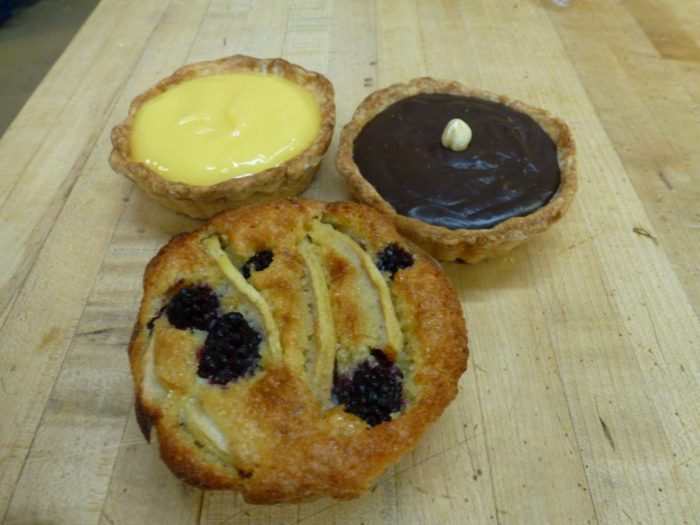
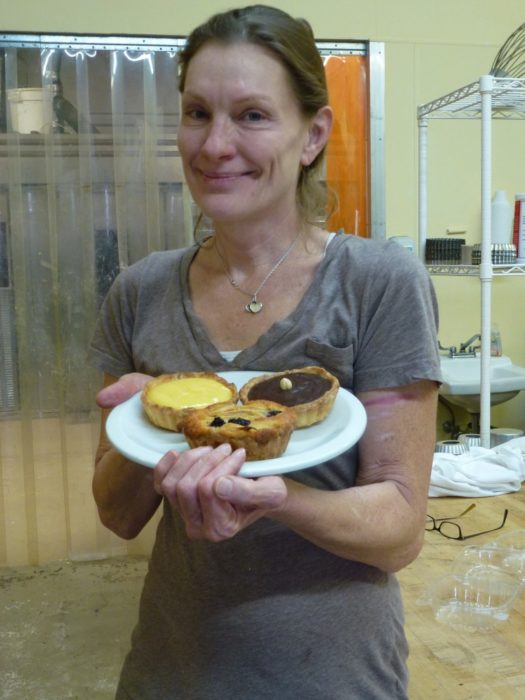
Cake and Spoon Bakery delivers hand-sized cakes, quiches, scones, and other sweet and savory pastries. Born and raised on a ranch in Texas, Melissa has never been far from the country. Her parents worked a ranch in near Bellville, Texas and her childhood memories include meat from the neighboring ranchers, milk from the local cows, fruit from her family orchard. As a child, she baked in her parents’ kitchen to please herself, especially with her own peanut butter cookies. She has lived local all her life.
Her pastries reflect her local grounding. Local honey, eggs, vegetables, and pork fill her quiches, brimming with her enthusiasm for quality products at a reasonable price. Because of her philosophy and the Texas drought, some of her creations combine cheeses and other ingredients produced elsewhere in order to provide her customers with reasonably priced food, a suiting compromise for a cook who loves her customers.
From a family of four girls, Melissa spent her years before founding Cake and Spoon learning how to bake as a professional. About twenty years ago, she left the oil and gas business to begin a long and varied education in the pastry world. She worked in small and large restaurants, catering businesses, and kitchen management before teaming up with another baker who introduced her to the small tarts and quiches that now make their mark in Austin. The baker, Tracy Carlos of Sticky Toffee Pudding Company (also in Austin), turned over her spot in Austin’s downtown farmers market, enabling Melissa to grow her own presence in the market. With her business she built on her partnership with Stacy to develop her own style and flavors.
The fillings in her quiches reflect her roots and imagination: Fresh bacon with vintage white cheddar and spinach with fresh sheep’s feta and ricotta (which she makes in her kitchen). Her sweet tarts envelop their fillings with flaky, hand-wrought crust: Chocolate hazelnut, Texas pecan, and frangipan with seasonal fruit are some of her signature desserts. Flapjacks, double ginger scones, lemon and lavender shortbread, all using available local ingredients appear at the three farmers’ markets that she attends.
Her kitchen is small and so is her staff. She and one other baker, Jasmine, turn out hundreds of small confections for her customers, some of whom have come to rely on her simple and fresh pastries. “My style is rough, simple, and fresh,” she explains. And her instincts are good. Seems that her style fits the tastes of Austinians who appreciate her answer to overworked and complicated food. Melissa has earned her following and wants to keep things uncomplicated and small, just like her quiches and tarts.
Robyn Metcalfe, Winter 2012, Austin Food Warrior

















